Supplier Agreement Management
Updated:

What Is Supplier Agreement Management?
Supplier agreement management is the process of handling all aspects of agreements with suppliers. It involves tracking, managing, and improving these contracts to ensure everything runs smoothly. By managing supplier agreements well, businesses can avoid problems, meet their goals, and build strong relationships with their suppliers.
Supplier Agreements Defined
A supplier agreement is a contract between a buyer and a supplier. It sets out the terms and conditions of their relationship. This includes details like:
- Pricing: How much the buyer will pay for goods or services.
- Delivery Schedules: When and how the goods or services will be delivered.
- Quality Standards: The level of quality the goods or services must meet.
- Payment Terms: When and how payments will be made.
- Responsibilities: What each party is expected to do.
- Dispute Resolution: How any disagreements will be handled.
These agreements lay the foundation for how goods or services will be provided and received. They are essential for setting clear expectations.
Types of Supplier Agreements
Supplier agreements can vary widely depending on the industry, the size of the companies involved, and the complexity of the products or services.
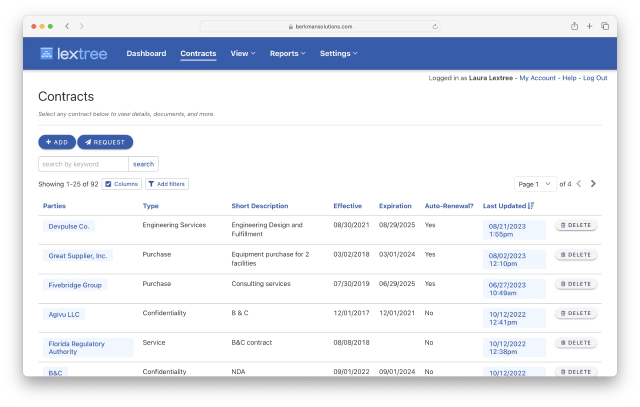
Some common types include:
- Fulfillment Agreements: These outline how a supplier will fulfill orders placed by the buyer. They cover order processing, packaging, shipping, and handling.
- Purchase Agreements: These detail the terms under which goods or services are bought. They include quantities, prices, and delivery terms.
- Service Level Agreements (SLAs): These set the expected level of service from the supplier. They define performance metrics and how they will be measured.
- Master Service Agreements (MSAs): These cover the general terms of the relationship. They are used when there will be many separate contracts over time.
- Distribution Agreements: These allow a supplier to distribute goods through a buyer’s channels. They set out the terms for distribution rights and responsibilities.
- Parts and Materials Agreements: These specify the supply of parts and materials needed for production. They ensure a steady supply of components.
No matter the type, the main idea is that the supplier agrees to provide goods or services to the buyer in exchange for payment. Having the right type of agreement helps both parties understand their roles and expectations.
Contract Management Defined
Contract management is the process of overseeing contracts throughout their life cycle. This includes:
- Creation: Drafting and negotiating the contract terms.
- Execution: Signing the contract and making it legally binding.
- Monitoring: Keeping track of performance and compliance.
- Amendments: Making changes to the contract when needed.
- Renewal or Termination: Deciding whether to continue or end the contract at its expiration.
The goal of contract management is to make sure all parties fulfill their obligations, reduce risks, and streamline tasks after the contract is signed.
An example of a post-execution task is an amendment request. Suppose the buyer wants to change the delivery schedule. They would submit an amendment request, which needs internal review and approval before being sent to the supplier for agreement.
The Role of Contract Management in Supplier Agreements
Contract management plays a crucial role in supplier agreements. It helps businesses:
- Track Obligations: Know what they need to do and what the supplier is expected to do.
- Manage Deadlines: Keep up with important dates like delivery times and payment due dates.
- Handle Changes: Manage any amendments or modifications to the contract.
- Ensure Compliance: Make sure both parties are following the terms of the contract and any relevant laws.
- Maintain Relationships: Build strong partnerships with suppliers by keeping communication clear and addressing issues promptly.
By managing supplier agreements effectively, companies can avoid misunderstandings, reduce risks, and get the best value from their supplier relationships.
Compliance Tracking and Supplier Agreements
Compliance tracking means making sure that all parties follow the rules set out in the contract and by law. This is important because non-compliance can lead to legal trouble, fines, or damaged relationships.
Federal and State Regulations
Supplier agreements are subject to various laws and regulations. These can include:
- Safety Standards: Laws that ensure products are safe for consumers.
- Environmental Regulations: Rules that protect the environment from harmful practices.
- Labor Laws: Regulations that protect workers’ rights and fair labor practices.
- Trade Compliance: Laws that govern international trade, such as import/export restrictions and tariffs.
Businesses need to understand these regulations to ensure their supplier agreements comply with the law. This may involve working with legal experts or compliance officers.
Supplier Side Obligations
Suppliers have certain duties they must fulfill, such as:
- Delivering Goods or Services: Providing what was agreed upon, on time, and meeting quality standards.
- Maintaining Licenses and Certifications: Having the necessary permits to operate legally.
- Complying with Laws: Following all relevant regulations, including safety and environmental laws.
- Providing Documentation: Supplying certificates of insurance, safety data sheets, or other required documents.
By tracking these obligations, buyers can ensure that suppliers are meeting their responsibilities, which helps prevent problems down the line.
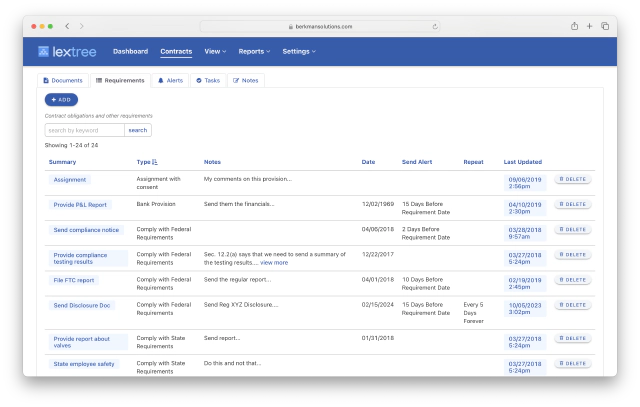
Buyer Side Obligations
Buyers also have responsibilities under the supplier agreement, including:
- Making Payments on Time: Paying invoices according to the agreed schedule.
- Providing Information: Giving suppliers the necessary details to fulfill orders, such as specifications or forecasts.
- Complying with Regulations: Following laws that apply to the purchase and use of the goods or services.
- Communication: Keeping open lines of communication to address any issues promptly.
Meeting these obligations helps maintain a good relationship with suppliers and ensures that operations run smoothly.
Risk Management and Supplier Agreements
Managing risks is essential to protect the business from potential losses or disruptions.
Revenue Risk
Revenue risk refers to the possibility of losing money due to:
- Market Changes: Fluctuations in demand or prices that affect profitability.
- Supplier Performance: Delays or poor quality that impact sales.
- Contract Terms: Unfavorable terms that lead to higher costs.
To manage revenue risk, businesses can:
- Negotiate Favorable Terms: Ensure pricing and payment terms are fair.
- Include Performance Metrics: Set clear expectations for supplier performance.
- Diversify Suppliers: Use multiple suppliers to reduce dependency on one source.
Operational Risk
Operational risk involves the chance of business operations being disrupted due to:
- Process Failures: Breakdowns in the supply chain or production processes.
- Systems Failures: Issues with technology or equipment.
- External Events: Natural disasters, political instability, or other factors outside the company’s control.
To manage operational risk, companies can:
- Develop Contingency Plans: Have backup plans in case of disruptions.
- Regularly Review Processes: Identify and fix weak points in operations.
- Monitor Supplier Performance: Keep an eye on suppliers to catch issues early.
By addressing these risks, businesses can keep operations running smoothly and avoid costly interruptions.
Document Management and Supplier Agreements
Proper document management ensures that all important information is organized and accessible when needed.
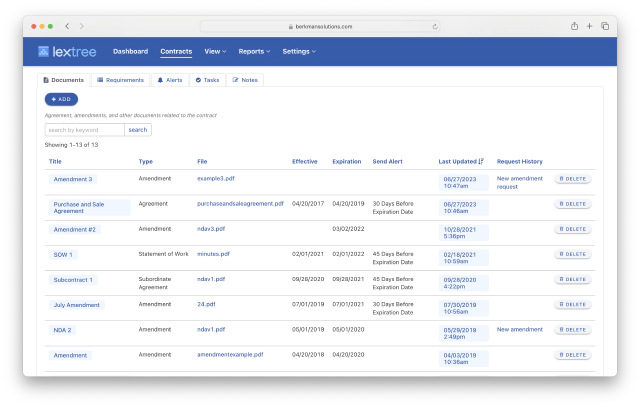
Fully Executed Contracts
These are the final versions of contracts, signed by all parties. They should be stored securely, both in physical form and digitally. Easy access to these contracts allows for quick reference and helps in resolving any disputes.
Amendments
Any changes to the original contract must be documented through amendments. Keeping track of all amendments is important to know the current terms of the agreement.
Certificates of Insurance
Suppliers often need to provide proof of insurance. Certificates of insurance show that the supplier has coverage for liabilities. Tracking the expiration dates of these certificates ensures that suppliers maintain the necessary insurance.
Schedules and Exhibits
These are attachments to the main contract that provide additional details. They might include:
- Delivery Schedules: Specific dates for deliveries.
- Pricing Lists: Detailed pricing information.
- Technical Specifications: Detailed descriptions of products or services.
Managing these documents ensures everyone has the most up-to-date information.
Subcontractor Agreements and Documents
If suppliers use subcontractors, their agreements also need to be managed. This helps ensure that subcontractors meet the same standards and obligations.
Correspondence
Keeping records of emails, letters, and other communications can be valuable. They provide a history of interactions and can help resolve misunderstandings.
Expiration Date Management
Knowing when contracts and related documents expire helps avoid unintended lapses.
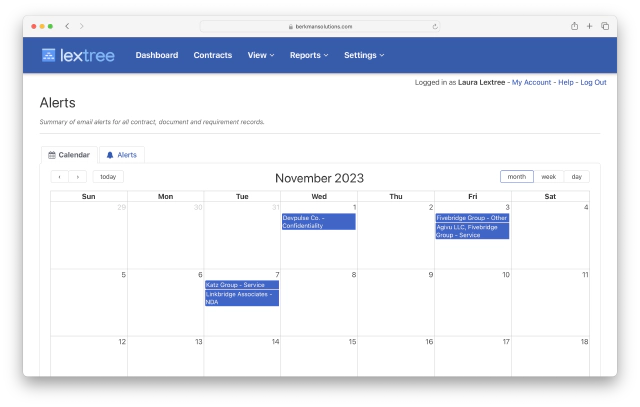
Term Contracts
These contracts have a set end date. Before they expire, businesses need to decide whether to renew, renegotiate, or end the agreement.
- Set Reminders: Use calendar alerts to notify when a contract is nearing expiration.
- Review Performance: Assess whether the supplier has met expectations before deciding to renew.
Evergreen Contracts
Evergreen contracts automatically renew unless one party gives notice. While convenient, they can lock a business into outdated terms.
- Regular Reviews: Periodically assess the terms to see if they still meet the company’s needs.
- Notice Periods: Be aware of deadlines for giving notice if changes are desired.
Auto-Renewal Provisions
Some contracts have clauses that renew certain terms automatically.
- Understand the Clauses: Know which parts of the contract renew and under what conditions.
- Plan Ahead: Decide in advance if you want to continue with the auto-renewal terms.
Amendment Tracking
Keeping track of amendments includes noting any changes to expiration dates or renewal terms.
- Update Records: Make sure all changes are reflected in the contract documents.
- Communicate Changes: Inform all relevant parties about amendments.
Related Document Expiration Dates
Documents like insurance certificates or licenses also have expiration dates.
- Monitor Dates: Keep track of when these documents expire.
- Request Updates: Ask suppliers to provide new documents before the old ones expire.
Post-Execution Tasks
Even after a contract is signed, there’s work to be done to ensure everything runs smoothly.
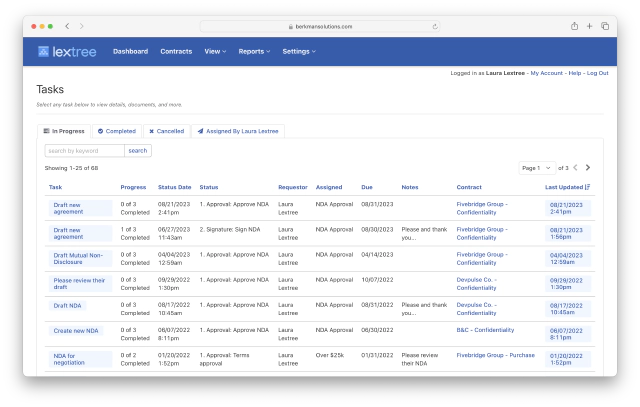
Amendment Requests
When changes are needed, an amendment request is made.
- Internal Review: The request should be reviewed by the relevant departments.
- Approval Process: Obtain necessary approvals before sending to the supplier.
- Clear Communication: Explain the reasons for the amendment to the supplier.
Approval Workflows
Having a structured approval process helps manage changes efficiently.
- Define Steps: Know who needs to approve each type of change.
- Use Tools: Implement software to track approvals.
- Document Decisions: Keep records of who approved what and when.
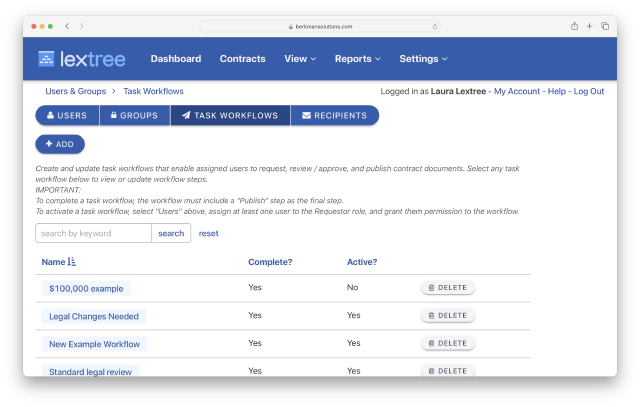
Task Collaboration
Working together on tasks helps ensure that nothing falls through the cracks.
- Assign Responsibilities: Know who is responsible for each task.
- Set Deadlines: Establish when tasks need to be completed.
- Communicate Regularly: Hold meetings or use collaboration tools to stay updated.
By managing post-execution tasks well, businesses can maintain strong supplier relationships and address issues promptly.
Conclusion
Supplier agreement management is a vital part of running a successful business. By effectively managing agreements, tracking compliance, reducing risks, and handling tasks after the contract is signed, companies can get the most out of their supplier relationships. Staying organized, proactive, and communicative leads to better outcomes and helps avoid problems down the road. With the right processes in place, businesses can ensure that their supplier agreements support their goals and contribute to their overall success.